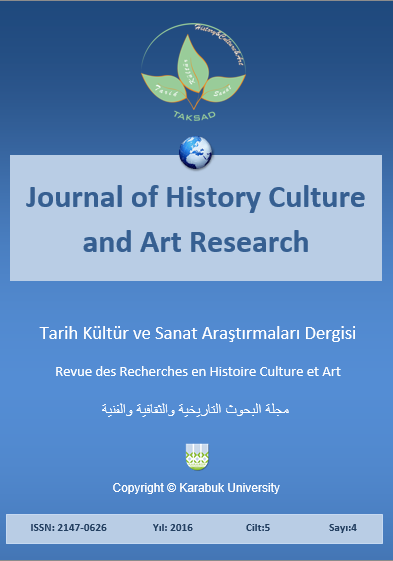The Role of Education in Purging Violence and Immoral Acts in Individual and Social Upbringing
DOI:
https://doi.org/10.7596/taksad.v5i4.585Keywords:
Education, educational methods, purging violence, social upbringing, immoral acts.Abstract
Abstract
This research examines the role of education in purging violence and preventing immoral acts in individual and social upbringing. According to the content of this research, we can acknowledge this: education is the process of notifying the trainee and caring for him in a manner that he is accustomed to some behaviors and abandons some of them, and also recognizes behavioral trauma and errors. The child develops a behavioral pattern. Therefore, he does what he observes in a family environment, including mother and father and the other members of the family. Gradually, he grows and enters a larger setting: school. The important point in here is the role of adopting pattern from one’s peers, teacher, and teaching staff, including the principal also seems essential. Furthermore, the child, who is called student in here, directly receives instructions and develops recognition regarding values and disvalues. He finds that if he shows a disvalued behavior, it is called an abnormal behavior. This type of behavior appears in various forms, including social personality disorders. Since abnormal and disvalued behavior is an anti-social phenomenon and bears many losses (life and property), the government attempts to oppose this anti-social phenomenon. In this research, the dimensions and types of violence are studied. This study suggests that the school, as a bridge between family and society, would have a more effective role in education and preventing violence.
References
Afjeiee, A. (1990). Importance of the Individual Needs, Journal of Management, Issue 17.
Ashoori, Ahmed & Turkman Malayer, Mehdi & Fadaee, Zahra. (2008). Effectiveness of Assertive Group Therapy in Reducing Aggression and Improving Academic Achievement Among High School Students. Journal of Clinical Psychiatry and Psychotherapy. #14.
Bazargan, Zahra (1997). Eleven Steps in Children Moral Development. Peyvand. Issue 11.
Coloroso, Barbara. (2013). Bullies, Underdog and Bystanders. Translation by Marjan Faraji. Published by Javaneh Roshd.
Dewey, J. (1916). Democracy and Education: Newyork, Macmillan Company.
Dreeben, R. (1968). On What is Learned in School: Massachusetts, Addison-Wesley.
Farjad, Mohammed Hussein (2004). Pathology and Social Deviations, Tehran: Samt Publications.
Ghaemi, Ali. (2006). Upbringing and Restoration of Children. Edition 12, Tehran: Amiri Publications.
Ghasemi, Vahid & Zolactaf, Vahid & Noor ali vand, Ali (2010). Sociology of Sport. Tehran: Jame Shenasan Publications.
Ghourchian, Nader Gholi (1995). Growth and Development of Curriculum. Tehran: Institute for Research and Planning in Higher Education.
Golchin, Mehri (2002). Aggression in Adolescents and the Role of Family, Medicine and Health Care in Qazvin. Issue 21.
Gunter, Barrie (2009). The Effects of Video and Computer Games on Children. Translation Hassan Poor Abady Naeeni. Tehran: Javeneh Roshd Publications.
Manteghi, Morteza (2008). Video and Computer Games. Tehran: Abed publications.
Masen, Paul henry & Kagan, Jerome & Boston, Alta Carol & Conger, John janeway (1990). “Growth and Personality of Child” Translated by Mahshid Yasaii. Tehran. Markaz Publication.
Mohseni Tabrizi, Alireza (2004). Vandalism. Tehran: Tehran Publications.
Mujtahidzade, Fatemeh Sadat & Nissi, Abdolkazem (2009). Comparing Anxiety, Depression, Aggression and Academic Performance of Students with Stepfather and Stepmother and Biological Parents in Ahvaz. New Findings in the Journal of Psychology.
Parsons, T. (1952). "The School as a Social System: Some of its Functions in American Society". The Social System, New York: Free Press. Harvard Education Review, 29(4) pp. 297-318.
Saadi, Zahra & Mehrabizadeh Honarmand, Mahnaz & Najarian, Bahman & Ahadi, Hasan & Asgari, Parviz (2010). The Effect of Emotional Intelligence Training on Reducing Aggression and Increasing Individual-Social Adjustment in Secondary School Students in the City of Ahvaz. New Findings in the Journal of Psychology.
Saffarinia, Majid (2009). Social Psychology in Education. Tehran: University Payame Noor.
Salahshour, Mandana (1999). Aggression in Children and Ways of Dealing with it. Tehran: Publication of Vaje ara.
Shabani, Hassan (2002). Educational and Training Skills, Seventh Edition, Tehran: Samt Publications.
Shariatmadari, Ali (2005). Principles and Philosophy of Education. Tehran: Amir Kabir Publications.
Soltani, Hamid Reza & Allahyari, Abbas Ali R. & Tabatabaei, Seyed Kazem & Soltani, Nadia. (2010). The Impact of Musical Themes on Reducing Aggression in Students. Ofogh Danesh journal. Volume 16, Issue 4.
Tusi, Mohammad Ali (1996). A New Concept of Education in the Present Day. Journal of Management in Education, Issue 14.
Downloads
Published
How to Cite
Issue
Section
License
All papers licensed under Creative Commons 4.0 CC-BY.- Share — copy and redistribute the material in any medium or format
- Adapt — remix, transform, and build upon the material for any purpose, even commercially.
Under the following terms:
Attribution — You must give appropriate credit, provide a link to the license, and indicate if changes were made. You may do so in any reasonable manner, but not in any way that suggests the licensor endorses you or your use.
- No additional restrictions — You may not apply legal terms or technological measures that legally restrict others from doing anything the license permits.







